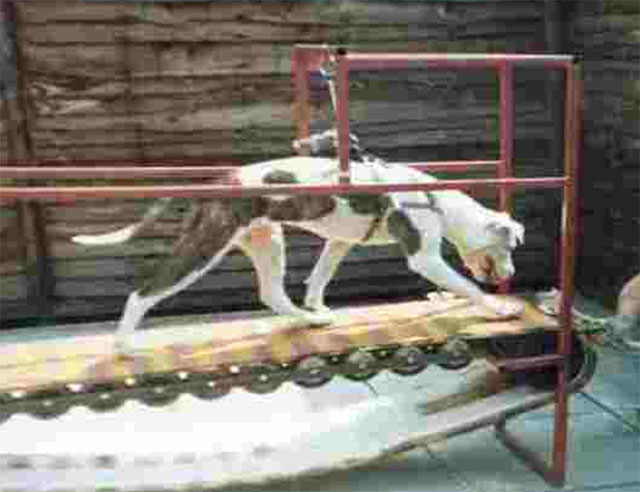The number of incidents reported to and investigated by the RSPCA in Wales has risen by 21% in the last four years, new figures reveal.
The number of dogfighting incidents reported to the RSPCA is on the rise, increasing 21% from 2020 (19 incidents) to 2023 (23 incidents).
The charity’s Special Operations Unit (SOU) – a specialist taskforce that investigates serious and organised animal crime, such as dog fighting – recently brought a fighting ring to justice following a two-year investigation.
Now, the charity is racing funds via its ‘No Animal Deserves Cruelty’ campaign to support the efforts of its dedicated rescue teams.
RSPCA SOU Chief Inspector Will Mitchell said: “Dog fighting is a draconian and barbaric bloodsport which many people believe has been left behind in history. Sadly, the reality is that we continue to investigate cases today, involving sophisticated networks of people whose passion is breeding, training, arranging and fighting dogs.
“We see career criminals getting their kicks from watching dogs rip each other’s throats out and break each other’s legs. It’s shocking and there is absolutely no place for it in society today.
“As we all work together to try to create a kinder world for animals, it’s time this sort of sickening level of deliberate and gratuitous animal cruelty was stamped out for good – but we need your help to do that. If you have any concerns about dogs or people who may be involved in fighting, please contact our cruelty line on 0300 1234 999.”
The figures reveal that the RSPCA has investigated 97 reports of dog fighting in Wales over the last four years (2020-2023). The charity’s investigators in England followed up on 1,734 reports of dog fighting in England from 2020-2023.
The difficulty for the RSPCA’s investigators is gathering evidence against the secretive and surreptitious gangs who operate in very tight-knit groups.
Lives of suffering
Ian Briggs heads up the RSPCA’s Special Operations Unit, and added: “We’ve seen cases in which dogs are forced to fight to the death or are left with catastrophic injuries such as broken legs and deep puncture wounds to their heads and faces.
“Tragically, the suffering for these dogs doesn’t end in the fighting pit. Injured and dying dogs can be electrocuted to death or even drowned in bathtubs before their bodies are burned to ash. Dogs who refuse to fight or lose in the pit are abandoned.
“Winning dogs are prized but will be left with serious injuries and won’t be seen by a vet but instead patched back together with DIY vet kits by their owners, without pain relief or anaesthetic, until they’re ready to fight again.”
Sadly, many of the dogs used by dog fighters are never found and those who are rescued are often identified as banned breeds under the Dangerous Dogs Act** and cannot legally be rehomed.
Will Mitchell added: “Dog fighting is a dark, secretive sport but it could be happening near you; in a garage or warehouse in the heart of a city, or on a rural farm in a quiet village.
“We’d urge the public to contact the police or RSPCA if they have any concerns about dog fighting near them. Signs can vary but dogs used in fighting will usually have scars on their face, front legs and hind legs, and they can also have damaged ears and puncture wounds. Other suspicious activity includes hiding dogs away in outbuildings or kennels and not exercised in public, as well as groups of people meeting with their dogs.”
The RSPCA urges the public to be its eyes and ears and to report anything suspicious. Anyone who is concerned about the welfare of an animal or suspects dog fighting may be taking place should contact the police or visit the RSPCA website to find out how to report cruelty.
You can make a donation to support the RSPCA’s work.

